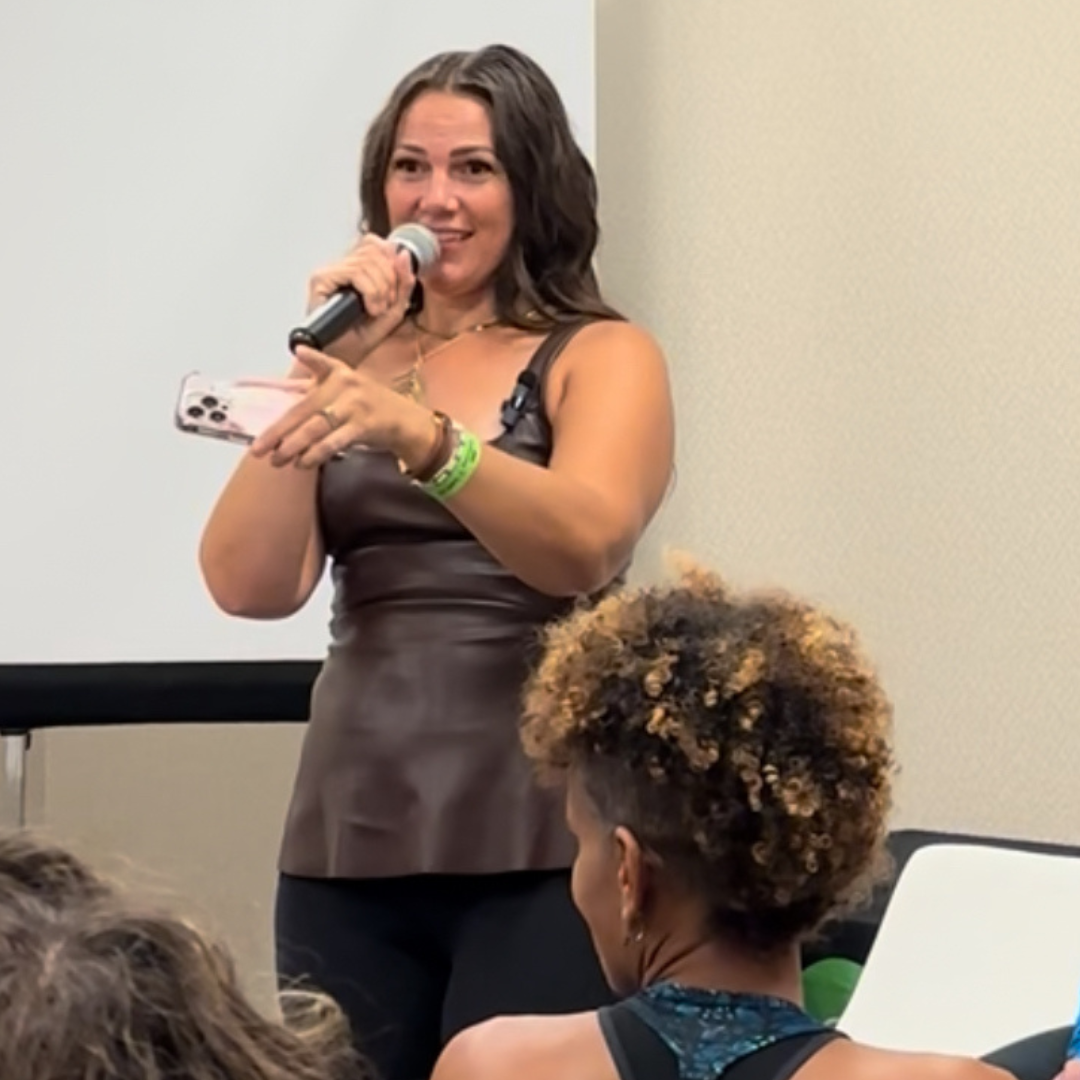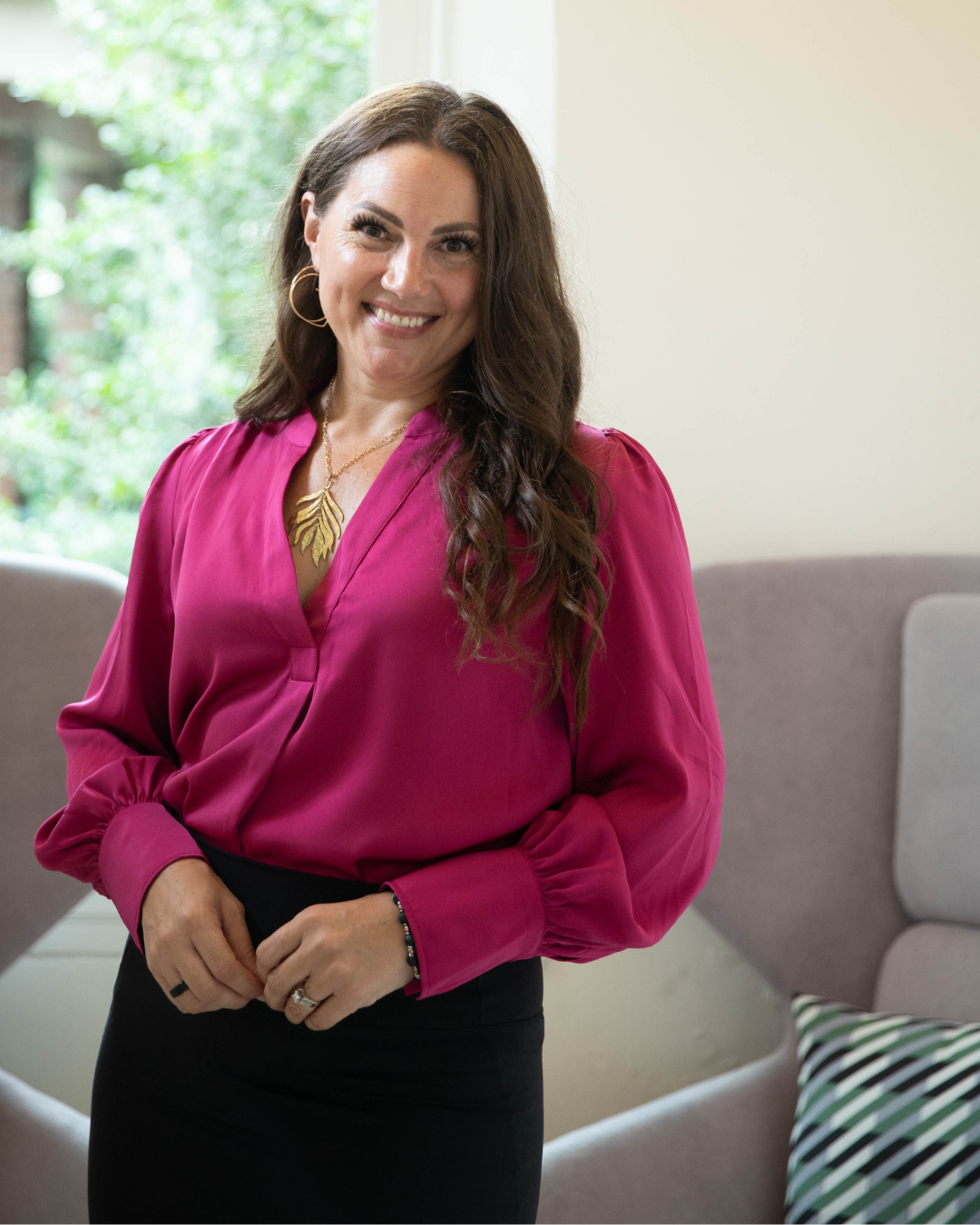
Step Into The Business
You Deserve
Helping fitness professionals start and grow their online business even when they have a small following.
As Seen At:
IDEA/ACSM Health and Fitness Summit
canfitpro
SCW Mania
FREE TRAINING:
How I Made $200k As An Online Fitness Professionals With Only 583 Followers 👇

250+
Active Six Figure Framework Graduates
$6,200
average additional monthly income per student
6 -9
Average number of new clients per month
Hey there, I'm
Brandi Clark
I am a personal trainer, 2x gym owner turned business mentor, podcast host, Keynote Speaker and I've been featured at fitness conferences across the US and Canada...
but I am especially good at monetizing accounts with a small following and turning them into BIG money.
However, it wasn't always this way. In fact when I sold my gyms in 2018 I transitioned into the online space thinking it would be easy. #itwasn't
In fact, I wasted an entire years and $16,296 in coaching and courses trying to figure it out.
I'd get up early and stay up long after the kids went to bed watching YouTube videos, reading PDF's and taking course after course.

I just knew I could figure this whole "online thing" out. I never gave up, even when I wanted to, even when I was crying with frustration, even when I realized that a NORMAL person would have already gotten a regular j-o-b.
Since then I have spent over $75k on coaching programs and developed a Framework that produces clients like clockwork.
I have condensed everything I know down into a tactical approach to making money online.
All the action, non of the fluff and I want to share every piece of it with you.
Welcome to my world!
FREEBIE
30 Ways To Make $500 In Your Online Fitness Business By Next Week
Podcast & Blog

Build A Business You Can Sell
How to Build a Business You Can Actually Sell (Even If You’re a Coach or Personal Brand)
Think your business is your legacy? Great. But is it sellable? That’s the real question.
If you’re building an online business — especially in coaching, consulting, fitness, or personal branding — chances are you’ve poured your soul into it. You’ve launched offers, hired teams, scaled revenue, and probably burned out a few times along the way.
But actually...
👉 Most online businesses aren’t sellable.
In fact, according to Nicole Spencer — serial entrepreneur and the latest guest on the podcast — up to 80% of business owners’ wealth is locked inside businesses that may never actually sell.
So if you're in this game for the long haul (or hope to someday get out of it with something to show), it's time to ask:
🧠 Are you building a cash machine — or an asset someone can actually buy?
Let’s dig into what makes a business sellable — and what most coaches get wrong.
💣 Harsh Reality: You WILL Exit Your Business (Whether You Plan To or Not)
Let’s get this out of the way first:
You will exit your business one day.
That’s not up for debate. You can’t avoid it.
What is optional?
👉 Whether you walk away with a payout — or nothing at all.
Nicole dropped this truth bomb during the podcast, and it deserves to be in neon lights. Whether due to burnout, lifestyle change, a new direction, or the 5Ds (divorce, death, disability, disagreement, distress), the time will come when you’ll step away from your business.
The question is: Will you exit on your terms?
Most coaches and online entrepreneurs assume they’ll either “just keep going” or quietly shut things down when they’re ready to move on. But this mindset leaves massive wealth on the table.
If you're going to spend years building something — make sure it's worth something even after you're done running it.
🧩 The 4 Hidden Factors That Make a Business Sellable
A buyer isn’t buying your charisma, your Instagram following, or your funnel.
They're buying a machine that works without you.
80% of a business's value is intangible — and it's broken into these four key categories of capital:
1. Human Capital
Your team.
Do you have a reliable, trained team in place that knows how to operate the business without you? Buyers don’t want to inherit chaos — they want confidence.
2. Structural Capital
Your systems, IP, and documentation.
Are your processes clearly mapped out and repeatable? Can someone step in and follow SOPs to deliver your offers and run daily ops?
This is where most online coaches fail — if everything lives inside your head, your business has zero transferability.
3. Customer Capital
Your audience and client relationships.
Think: email list, CRM data, recurring revenue, retention rates. A buyer wants to know that customers don’t just come for you, but that they’ll stick around when you’re gone.
4. Social Capital
Your brand, community, and reputation.
A recognizable brand, values-driven messaging, and a loyal following increase buyer confidence. But again — this only works if you’ve built a brand, not just a persona.
🔒 The #1 Deal Killer: Owner Dependency
Want to know the fastest way to destroy the value of your business?
Make yourself irreplaceable. 😬
It sounds counterintuitive, right? We’re taught to be the face, the brand, the expert. But here’s the thing:
👉 If you are the business, there’s nothing to buy.
Nicole explained this beautifully in the podcast:
“You can’t be the commodity and expect to sell your business.”
The business needs to run because of your systems — not your presence.
💡 It’s okay to still be involved. But make sure you're not required for the business to function.
🛑 Another Deal Breaker: Customer Concentration
Let’s say you do have solid systems, a small team, and good revenue. But what if 70% of that revenue comes from three VIP clients?
That’s called customer concentration — and it’s a huge red flag for buyers.
If losing one or two clients would significantly hurt your bottom line, your business isn’t secure enough to sell. To fix this, aim for:
A diverse client base
Scalable offers with wide reach
Systems for steady lead generation and sales
📉 The Ugly Stat No One Talks About
Even if you're doing everything right…
📊 70–80% of small businesses that try to sell never actually get bought.
Why?
Because the business isn’t attractive enough to a buyer, or the business can’t operate without the founder.
Nicole shared that when she started thinking about exiting, it wasn’t because she was desperate or done. In fact, she was in the middle of her most profitable year ever.
But she knew she didn’t want to be part of the “coaching noise” forever. And she wanted to explore:
👉 Who am I without this business?
That question is powerful. And if you’re running your business with your identity completely wrapped in it, this episode will challenge you to think differently.
🛠️ What Makes a Business Valuable? (And What Doesn’t)
Buyers care about:
Cash flow and profit margins
Proven systems
Reliable team
Clean, current financials
Transferable assets (IP, content, funnels, customer base)
They don’t care about:
How much you’re “crushing it” on social
Your million-dollar launch screenshots
Your personal visibility if you can’t transfer that into a system
Pro tip: Nicole mentioned she spent $350K in one year on coaching and mentorship — and guess what? That gets added back into the value of your business if it’s a discretionary expense.
Translation: A good advisor can help recast your numbers to show true profit.
🧭 So... Should You Start Planning Your Exit Now?
YES. Whether you're 2 years in or 10 years deep — it's never too early to start exit planning.
You don’t need a timeline.
You don’t need to stop loving your business.
But you do need to start making moves that build long-term value.
Because one day, you will want out. And when that moment comes, you’ll either have a sellable asset — or a burnout-fueled shutdown.
🎧 Want the Full Story? Listen to Nicole Spencer on the Podcast
This blog barely scratches the surface.
In this candid, no-fluff episode, Nicole and [Podcast Host Name] talk about:
The emotional side of exiting a business
How she transitioned out without crashing her brand
The exact systems that made her company attractive to buyers
Her biggest mistakes — and what she’d do differently
If you’ve ever thought:
“Could I actually sell this business someday?”
Then this episode of Beyond The Sets And Reps is required listening.
